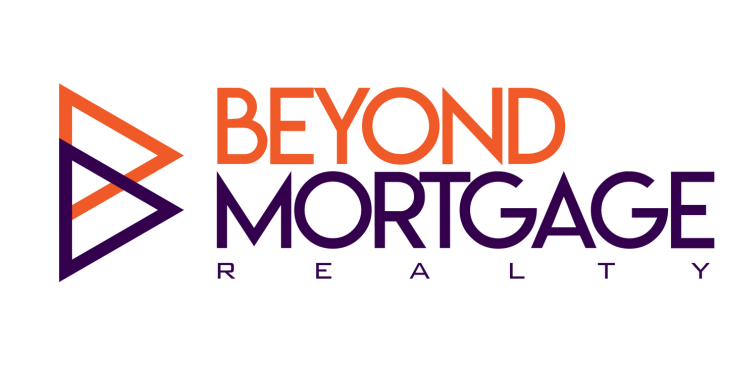Are you in need of some extra cash to fund a home renovation or pay off some debt? A second mortgage might just be the solution for you! Second mortgages have become increasingly popular in recent years as homeowners look for ways to tap into their home equity. In this blog post, we’ll explain what a second mortgage is, how it works, its benefits and risks, and provide tips on how to choose the best lender for your needs. So let’s dive in and explore the world of second mortgages!
What is a second mortgage?
A second mortgage is a loan that homeowners can take out using their property as collateral. It’s called a “second” mortgage because it’s taken out in addition to the primary or first mortgage on the same property.
Unlike the first mortgage, which is used to purchase the home initially and typically has a longer repayment term, a second mortgage can be used for different purposes such as renovation projects, debt consolidation or tuition fees.
Second mortgages are often referred to as home equity loans since they allow borrowers to access some of their home’s equity. The amount of money you can borrow depends on your credit score, income level and how much equity you have built up in your home.
It’s essential to note that if you default on your payments with a second mortgage lender, they may foreclose on your property. Therefore, it’s crucial that you carefully evaluate whether taking out this type of loan aligns with your financial goals and capabilities before deciding whether or not it’s right for you.
How does a second mortgage work?
A second mortgage is a type of loan that allows homeowners to borrow money based on the equity they have in their home. It works by using the property as collateral, which means that if you can’t repay the loan, your lender can take possession of your house.
Typically, a second mortgage will be for a smaller amount than your first mortgage and will come with higher interest rates. This is because it represents a greater risk for lenders – if you default on both mortgages, they’re more likely to lose money.
There are two main types of second mortgages: home equity loans and home equity lines of credit (HELOCs). With a home equity loan, you’ll receive a lump sum payment upfront and pay it back over time with fixed monthly payments. With HELOCs, however, you’re given access to revolving credit that you can draw from whenever necessary.
To qualify for either type of second mortgage, you’ll need to have significant equity in your home – typically at least 20%. You’ll also need to have good credit and enough income to make regular payments on the loan.
While there are risks associated with taking out a second mortgage – such as losing your house if you fail to keep up with payments – it can be an effective way to access funds when needed.
What are the benefits of a second mortgage?
A second mortgage, also known as a home equity loan, can offer several benefits to homeowners. One of the most significant advantages is that it allows you to tap into your home’s equity without having to sell your property. This means that you can access cash for any reason while still maintaining ownership of your house.
Another benefit of a second mortgage is that the interest rates are typically lower than other types of loans because they’re secured by your property. Additionally, since it’s a separate loan from your first mortgage, you’ll have more flexibility in terms of how much money you can borrow and when you repay it.
Second mortgages also come with tax benefits. Interest payments on home equity loans may be tax-deductible up to $100k for those who itemize their deductions on their tax return.
Furthermore, if used wisely, a second mortgage could help improve your credit score over time by diversifying the types of credit accounts in use on your credit report and showing responsible payment history.
There are numerous benefits associated with obtaining a second mortgage. However, like any financial decision, it’s essential to consider all factors before making this choice and ensure it aligns with both short-term needs and long-term goals.
What are the risks of a second mortgage?
While a second mortgage can offer financial relief, it’s important to understand the potential risks involved before committing to one.
One major risk is that you’re putting your home at stake as collateral for the loan. If you default on payments, the lender has the right to foreclose and take possession of your property. This means losing both your house and any equity you’ve built up.
Another risk is that interest rates may be higher than those for a first mortgage or personal loans. This may result in paying more over time and struggling with affordability.
You also need to consider how much debt you’ll be taking on with a second mortgage. Increasing your overall debt load could impact future borrowing ability and financial stability if unexpected expenses arise.
Make sure to read all terms carefully as some lenders may have hidden fees or charges associated with their loans. Take note of prepayment penalties which could add significant costs onto paying back the loan early.
Understanding these risks prior to obtaining a second mortgage will help ensure responsible financial decision-making.
How to choose the right second mortgage lender
Choosing the right second mortgage lender is crucial in ensuring that you get a good deal and avoid any potential risks. One of the first things to consider when looking for a lender is their reputation. Do some research online and read customer reviews to see what others have experienced with this particular lender.
Another important factor to consider is the interest rate offered by each lender. Make sure you compare rates from several lenders, as they may vary significantly. Don’t forget to also look at the fees associated with each loan, such as origination fees or prepayment penalties.
It’s also essential to ensure that your chosen lender offers flexible repayment options so that you can choose a plan that works best for your financial situation. Ask about the availability of fixed-rate and adjustable-rate mortgages, as well as how much flexibility they offer when it comes to changing payment terms.
Don’t forget about customer service – should anything go wrong during your loan term, it’s essential to know that there will be someone available who can help you resolve any issues quickly and efficiently. Look for lenders with responsive customer support teams who are willing to work with you throughout every step of the process.
Choosing the right second mortgage lender requires careful consideration of several factors including reputation, interest rates and fees charged by each provider, flexible repayment options available from them like fixed/adjustable-rate mortgages or other plans tailored specifically towards individual needs along with excellent customer service responsiveness whenever required!
Conclusion
To sum up, a second mortgage is a viable option for homeowners looking to access the equity in their homes. It can be an excellent source of funds for home improvements, college tuition, debt consolidation, or other financial needs.
Before taking out a second mortgage, it’s essential to do your research and weigh the benefits against the risks. A reputable lender should provide clear terms and conditions that you thoroughly understand before signing any paperwork.
As with any significant financial decision, it’s crucial to consult with professionals such as accountants or financial advisors who can help you make informed decisions about your finances.
If used responsibly and carefully selected from trustworthy lenders at favorable rates and fees with repayment schedules within your budget range – a second mortgage may prove beneficial in achieving your long-term financial goals.



